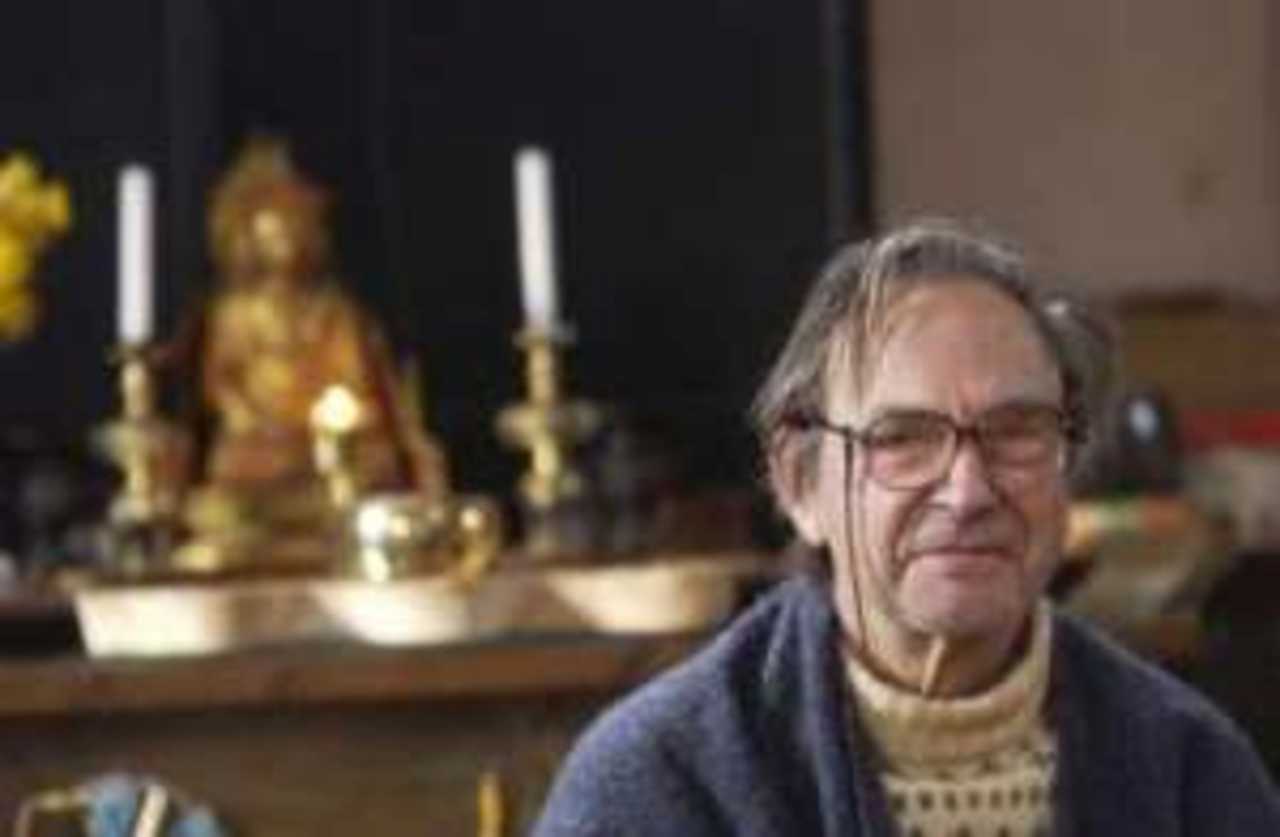Being Buddha

We all know the last line of the Heart Sutra because we chant it every day on retreat and probably from time to time on weekly meetings. The Sanskrit is Gaté Gaté Paragaté, Parasamgaté Bodhi Svaha usually translated as "Gone, gone, gone beyond, altogether gone. Wisdom All Hail". It is often taken to be a description of the enlightenment experience known as Kensho in Japanese or Kaiwu in Chinese. But this is not enough.
In a valuable discussion of Great Master Dogen’s account of this expression, we find that Roshi Jiyu Kennet, the foundress of Throssel Hole Abbey, gives an interesting and contrasting translation. She renders it "Going, going, going on beyond and always going on beyond, always becoming Buddha, Hail." She decided on this rendering after long discussions with her own teacher Roshi Kohõ Zenji in Japan.1 Why should she put it this way?
Dogen's viewpoint is fascinating. He bases his view on the idea that we all have inherent within us the same nature as the Buddha. When we explore this viewpoint practically through looking into our minds we find that the initial door to understanding it lies through considering the five aspects of mind known as the ‘skandhas’. These are Sensation, Perception, Cognition, Action, Awareness, which, taken together, comprise the functions of mind. We need to discover that basic Awareness alone, still present when all other mental activities are dropped is none other than the root of Buddha nature itself.
The reason is this. The first four ' skandhas' work together to give us our ideas about who we are. They function throughout our lives to build up our karma. Here lie all our problems acquired through time, especially those fearful of threats to self, worries about ones importance, looks, intelligence, rank, credentials, being liked or not and death as the silencing of it all. Simple awareness, being no more than ‘present in the presence of the present’ without all these hassling activities, brings insight and clarity. This ‘emptiness’ of mind is entirely practical and none other than the root nature of what the Buddha uncovered.
But awareness is continuous, it moves with time; mirroring time as it is without judging it. It is never ‘gone’ but is evermore ’going’. The Buddha mind that lies within us runs along in every moment, every hour, but our understanding of it is obscured by our worried preoccupations with our troubles. Once we can grasp the truth in ourselves through experience, we can manifest as ’Buddha’ without any sense of self-importance.
Of course, the reality of life is that we have to become aware of our fears and worries in such a way as to go beyond them. They arise inevitably because we are human but they can be set aside, let go. The Buddha too was human; he experienced the hassles of life, managing monks, interviewing puzzled people, helping Brahmins extend their minds, founding monasteries, trying to inject wisdom into politicians. We have to think of him as an active, concerned person. He knew it all but also transcended it through letting go into the simplicity of presence in the present without avoidance.
If we want to be like the Buddha, this must also be our path. It is not a matter of letting go into some cloud nine of bliss, some endless beatitude or inner peace but rather a vivid engagement with all the troubles of life while knowing how to transcend them. In our every day practice we need to understand this ’going on’. Sometimes we sit and go as far as we can in our meditation, sometimes we travel to retreats because training is essential if we hope to ‘go far’ in the Dharma, sometimes we try to help another who is suffering. We seek to limit our own selfishness and mean tendencies. We examine the Aspirational Prayer with serious intention to practice all of it. Gradually, we move towards understanding Buddhism not as an ‘ism’ but as a matured way of being, a participation. It requires endless dedication, confronting difficulties, seeing the triviality and selfishness of so much of our society and ourselves. This is what learning ‘to be a Buddha’ means.
Investigate!
Reference
- Kennet, Master Jiyu. 2005. Roar of the Tigress. Vol 2. Chapter 11 referring to Dogen’s Gyobutsu Iigi. Shasta Abbey Press. California.
- Publication date:
- Modified date:
- Categories: 2010 Teishos John Crook John Crook
-
 Western Chan Fellowship CIO
Western Chan Fellowship CIO - Link to this page
©Western Chan Fellowship CIO 1997-2026. May not be quoted for commercial purposes. Anyone wishing to quote for non-commercial purposes may seek permission from the WCF Secretary.
The articles on this website have been submitted by various authors. The views expressed do not necessarily represent the views of the Western Chan Fellowship.
Permalink: https://w-c-f.org/Q372-63
